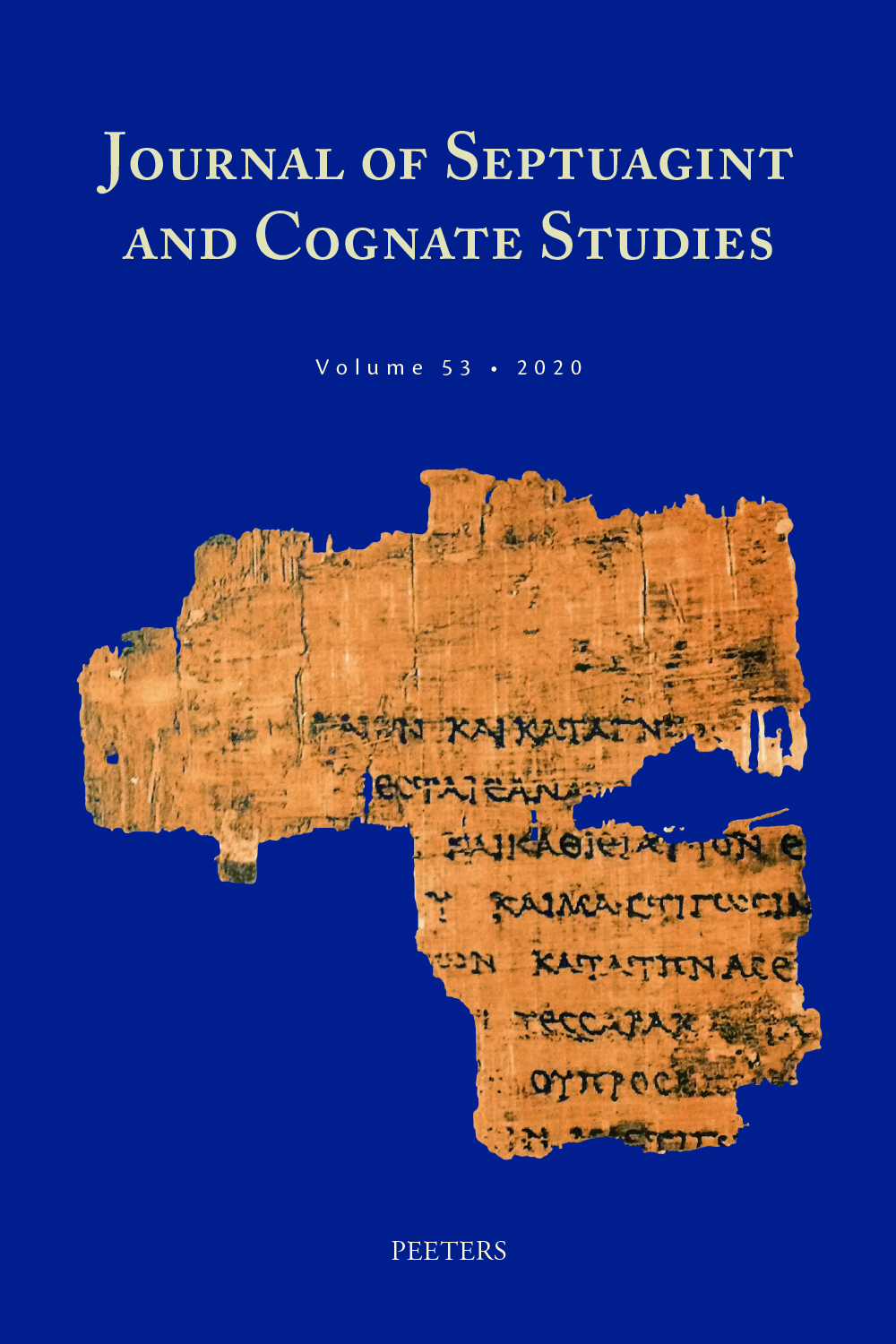 previous article in this issue previous article in this issue | next article in this issue  |

Preview first page |
Document Details : Title: ἀκούειν/εἰσακούειν (שמע) in Greek Exodus Author(s): PERKINS, Larry Journal: Journal of Septuagint and Cognate Studies Volume: 53 Date: 2020 Pages: 43-65 DOI: 10.2143/JSCS.53.0.3289024 Abstract : Text-linguistic information embedded in the Greek translation of Exodus is the primary data we possess to understand the translator’s process, discern the Greek linguistic conventions used by him, and establish his intended meaning. This kind of analysis also enables us to evaluate the degree of interference which the source text exhibits lexically and compositionally within the translation. The variation that occurs in Greek Exodus in the usage of ἀκούειν/εἰσακούειν provides an interesting case study in the translator’s approach to his task. This article reflects upon this translator’s textual decisions and seeks to discern why he employs this variation of Greek forms in his rendering of שמע. The translator’s choice of which verb to employ in a particular context is both a function of source text constructions and the result of his attention to the larger context in his translational choices. |
|


